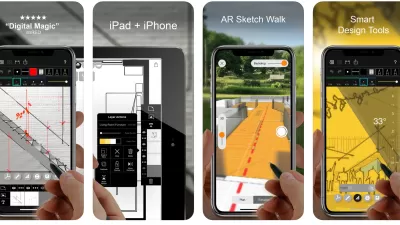Transit schedules, especially for buses, are notoriously inaccurate. A new app seeks to give a better picture of the status of the bus or train you keep trying to spot in the distance.
Moovit is the name of a new app "that crowdsources data from riders to provide a more complete image of what a trip is like," explains Zak Stone. Kind of like a Yelp for transit, that also happens to track your movements, Moovit gathers information from riders to help determine whether your ride is running on schedule. "Moovit piles that crowdsourced data onto layers of information you’d expect any transit app to work with—train and bus schedules plus municipally provided real-time vehicle data (when available)—to come up with as accurate a representation of a given ride as they can muster. Using that knowledge, Moovit can then make more nuanced trip plans, suggesting alternative routes that are perhaps less crowded or quicker."
In only two months, Moovit has attracted "more than 400,000 users in seven countries and 20 major urban areas, including Los Angeles, Rio de Janeiro, Madrid, Tel Aviv, and New York." And sustaining that type of growth will be crucial to the app's success, explains Stone. "Crowdsourcing data requires a crowd after all, and unless Moovit can recruit a minimum of 20,000 to 30,000 users-cum-data gatherers in most cities it serves, the app won’t live up to its promise and could end up as just another icon cluttering your phone’s home screen. Another problem is gathering data from users when they’re in the cell phone dead zone of the subway. But according to Gigaom, Moovit has raised $3.6 million, so they’ll have a lot of time and money to figure that out."
FULL STORY: An App That Uses Frustrated Riders’ Phones To Tell You That The Bus Will Be Late

Alabama: Trump Terminates Settlements for Black Communities Harmed By Raw Sewage
Trump deemed the landmark civil rights agreement “illegal DEI and environmental justice policy.”

Planetizen Federal Action Tracker
A weekly monitor of how Trump’s orders and actions are impacting planners and planning in America.

The 120 Year Old Tiny Home Villages That Sheltered San Francisco’s Earthquake Refugees
More than a century ago, San Francisco mobilized to house thousands of residents displaced by the 1906 earthquake. Could their strategy offer a model for the present?

In Both Crashes and Crime, Public Transportation is Far Safer than Driving
Contrary to popular assumptions, public transportation has far lower crash and crime rates than automobile travel. For safer communities, improve and encourage transit travel.

Report: Zoning Reforms Should Complement Nashville’s Ambitious Transit Plan
Without reform, restrictive zoning codes will limit the impact of the city’s planned transit expansion and could exclude some of the residents who depend on transit the most.

Judge Orders Release of Frozen IRA, IIJA Funding
The decision is a victory for environmental groups who charged that freezing funds for critical infrastructure and disaster response programs caused “real and irreparable harm” to communities.
Urban Design for Planners 1: Software Tools
This six-course series explores essential urban design concepts using open source software and equips planners with the tools they need to participate fully in the urban design process.
Planning for Universal Design
Learn the tools for implementing Universal Design in planning regulations.
Clanton & Associates, Inc.
Jessamine County Fiscal Court
Institute for Housing and Urban Development Studies (IHS)
City of Grandview
Harvard GSD Executive Education
Toledo-Lucas County Plan Commissions
Salt Lake City
NYU Wagner Graduate School of Public Service




























